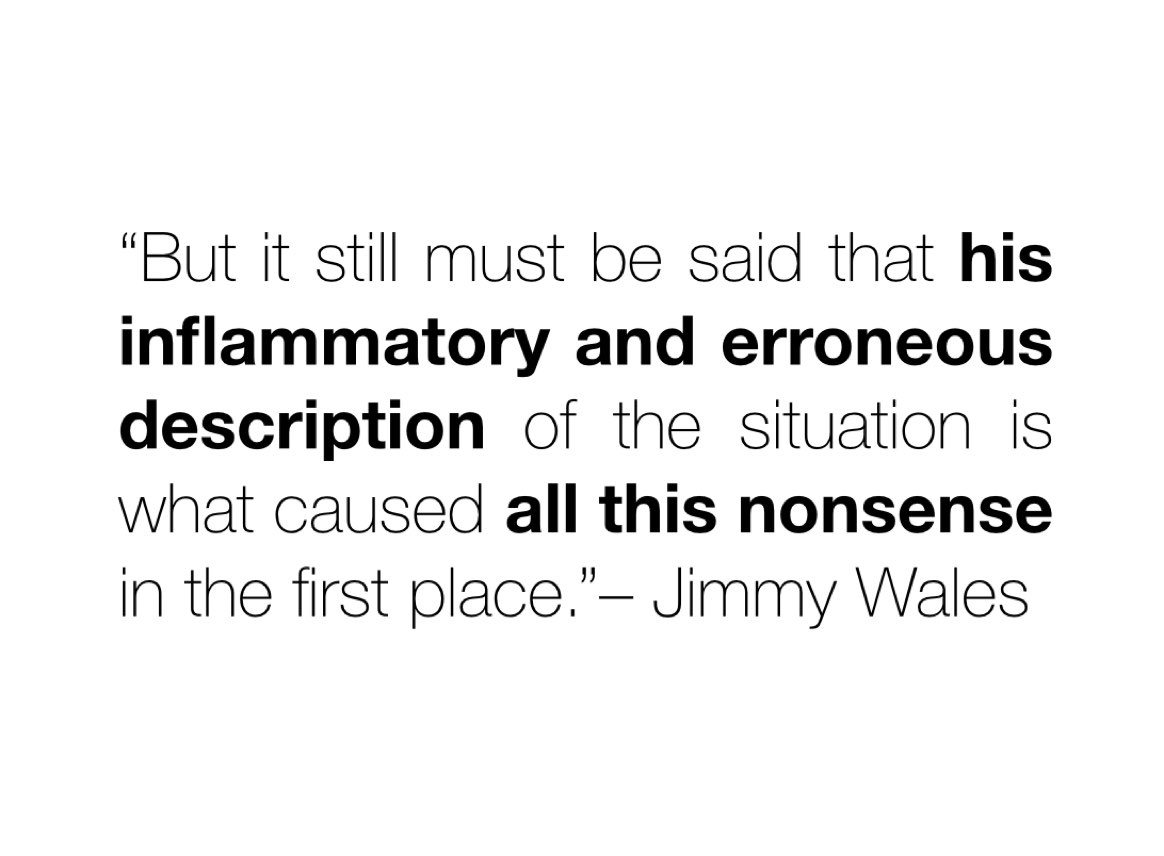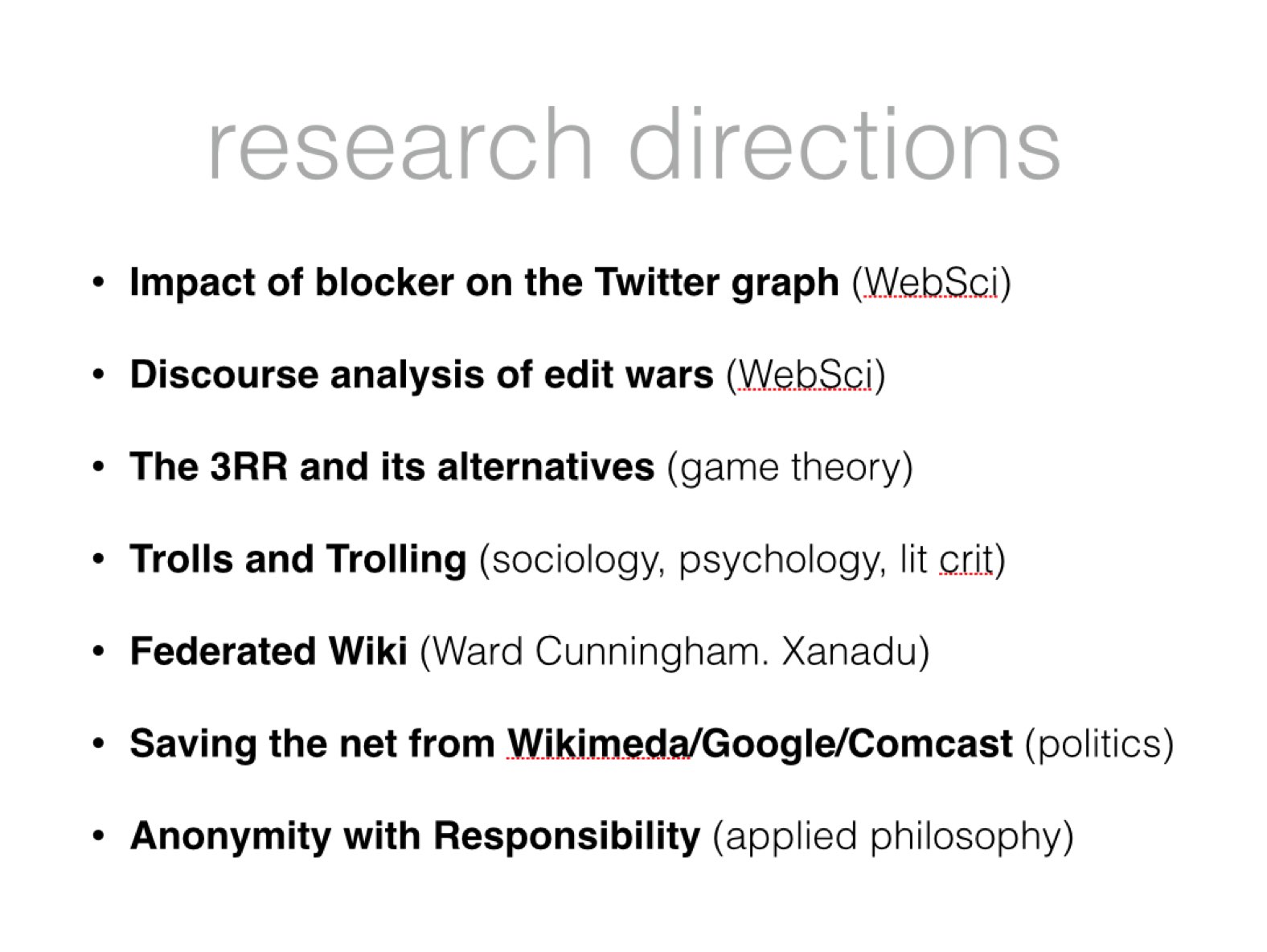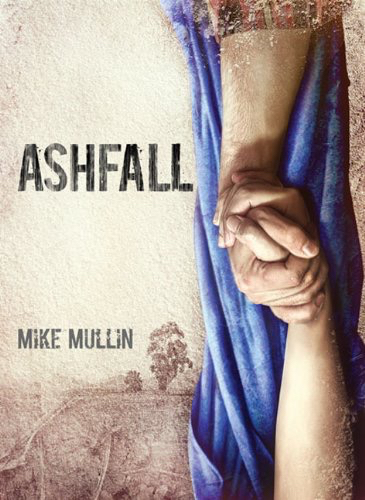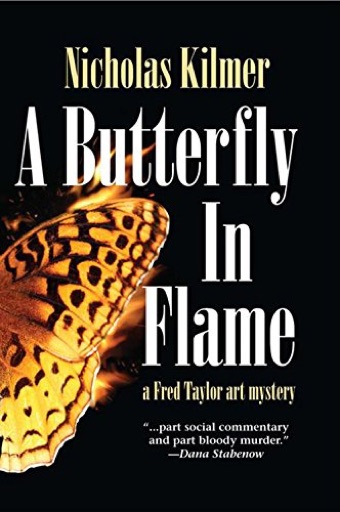Apparently, the Wikimedia Foundation has been caught red-handed, employing staff members to write puff pieces promoting its own philanthropy. Imagine that.
Meanwhile, the GamerGate people have petitioned to have me banished from Wikipedia because ArbCom forgot me, or because I keep looking at them funny, or because I’m really mean. Last week it was verse; this week, declamation.
Before this cunningly-contrived midnight trial in absentia concludes, perhaps I might review the choice that is offered here. On the one hand, you have an editor whose poor vocation as a knowledge seeker should be plain from his eight years of work here and his publications elsewhere. On the other, you have a barbarian horde of nameless trolls, openly colluding for months to exploit Wikipedia as part of a public relations campaign to threaten, shame, and punish women in computing.
“Next time she shows up at a conference we … give her a crippling injury that’s never going to fully heal … a good solid injury to the knees. I’d say a brain damage, but we don’t want to make it so she ends up too retarded to fear us.” -- Simon Parkin, “Zoe Quinn’s Depression Quest”, The New Yorker, 9 September 2014.Wikipedia's official response has been ineffectual and infamous.
“I (and Wikipedia) neither support nor oppose [software developer Zoe] Quinn. Wikipedia is not a battleground.” – Jimmy WalesImpartially to support or excuse a conspiracy notable only for threats of assault, rape, and murder, is to support those threats. Wikipedia can be a hobby or an entertainment, but for those against whom Wikipedia is weaponized it is neither. They cannot drop the stick and walk away; they can only submit to its repeated blows and hope that you will eventually raise your hand to restrain their assailants.
That’s the choice you have. But it’s not your choice alone: there are higher courts than yours, and in one tribunal you have already been taken to AN/I and sternly censured. With thought for Wikipedia's defenders and care for the damage Wikipedia has done, you can resolve to amend your behavior and return to productive membership in the community of ideas.
This is, of course, entirely consistent with -- and indeed mandated by -- Wikipedia's core principles. We are building an encyclopedia; we do not, and should not, employ that encyclopedia to attack blameless individuals, to intimidate people considering a potential career, or to improve the image of a so-called “movement.” Wikipedia is an encyclopedia, not a public-relations platform for the use of shadowy and shady causes. We are neutral, but that neutrality never extends to promoting falsehoods or excusing -- much less abetting -- criminal mischief. We follow sources; we never seek (as so many have been seeking on these pages) to "rebalance" them in light of an imaginary and universal conspiracy among the media. We seek consensus, which is incompatible with repeating the same failed proposals incessantly for months on end in the vain hope that something may have changed from the previous week, and with the fervent quest to sanction the five horsemen -- and me, and anyone else who stands in their way -- for defending the Wiki.
The problem is not insoluble or even difficult, but it does require resolve, hard work, and thorough sweeping. It’s time for you to choose.
The libertarian pipe dream of the darknet marketplace Silk Road is ably dissected by political scientist Henry Farrell (Georgetown). “The Silk Road might have started as a libertarian experiment,” he writes, “but it was doomed to end as a fiefdom run by pirate kings.”
Playing at pirates is only fun as long as the other players are kids too. The trouble is, once adults with real swords appear, it may be too late to wake up.
A fascinating documentary in which the documentary director, Sarah Polley, conducts interviews and readings with family members who are recalling their mother. We sense from the first that the mother won’t be around to tell her story, but turns out to be a pretty good story about family, family stories, and repercussions.
Streaming on Amazon.
by Mike Mullin
The volcano that underlies Yellowstone erupts massively, covering much of the continent in volcanic ash and triggering a long winter. Alex Halprin, a sullen fifteen-year-old, is alone at home when the world ends and his parents’ house collapses around him. He immediately resolves to walk from his home in Cedar Rapids, Iowa to meet his family, who are vacationing near Galena, Illinois.
Along the way, he becomes very good at cross-country skiing and his Tae Kwon Do turns out to be very useful. Also, he meets a girl. They have adventures. Eventually, they get swept into a Japanese prisoner-of-war movie FEMA concentration camp which, when you come right down to it, is a right-wing fever dream in which civil society has already broken down.
There’s a good chase scene in a bulldozer, though its impact might be greater if this 2010 chase in a bulldozer weren’t so close to the 1993 chase in an excavator in John Marsden’s Tomorrow When The War Began.
Yet there’s a lot to like here. The opening plays wonderful mind games with current YA genre conventions; we’re dozens of pages into the story before we realize that Alex isn’t a girl, we meet an older couple who are completely conventional and familiar and we only belatedly realize they're both men. There’s a decent sense of place and a quiet affirmation of the values of the rural Midwest as they are, not as fundie politicians pretend them to be. Even here, there’s a sense of the City As Abode Of Evil which is old but which also rings false; the farm may look askance at the Emerald City, but we all know that’s where we’re headed.
From the introduction to Vital Beauty: Reclaiming Aesthetics In The Tangle of Technology and Nature, edited by Koke Brouwer, Arjen Mulder, and Lars Spuybroek:
The problem was not that we were alienated from our work, our products; it was that we lacked a sense of beauty, or that our sense of beauty was frustrated and obstructed. Marx could never turn his theory into a positive philosophy; he believed things would be fine once power relations were reversed and the means of production had changed hands. For Ruskin, what was crucial was those means of production themselves. For him, beauty was not only about the appearance of our products, but how they were made, of what materials, under what conditions, and for what price: in short, it was an all-out aesthetic system of values.
The argument from Ruskin’s Vital Beauty suggest that software is beautiful when it is happy and healthy and doing what it ought to do and what it wants to do, and that software is ugly when it is malformed or idle or repetitiously serving our simple needs. A tree waving in the wind is beautiful though not useful; the same tree cut down to bridge a river is useful but not beautiful.
There is not anything which causes so intense and tormenting a sense of ugliness as any scar, wound. monstrosity, or imperfection which seems inconsistent with the animal’s ease and health.
Yesterday, someone named “GoldenRing” tried to get me banned by ArbCom, arguing that the only reason I’d not been banned is that they’d forgotten me, and complaining that I kept referring to my scurrilous writing about Wikipedia.
This nonsense can be a bore, so I replied in alliterative verse. It runs long: here’s a taste.
Generous @Gamaliel patiently posits that
People who think me pernicious, perfidious,
And pretty much perfectly putrid would be
Glad to display my poor noggin on pikes…
Some reviews here. One bystander clearly thinks I’m in contempt of court, but since I’ve already called this panel “infamous, thoughtless, careless, and reckless” I don’t think a little alliteration really adds to the pile.
Elsewhere, one fellow tried to edit-war 3,000 words of insinuation of fraud into Brianna Wu’s talk page. Something happened at the page of Frank Wu, the husband of a GamerGate target, but whatever it was, it was sufficiently vile that the whole record has been expunged. Edit wars broke out at Anita Sarkeesian over whether, in describing the harassment, she should be called “Anita” or “Sarkeesian” and related topics.
And did I mention that Boston has an awful lot of snow?

The page on Criticism of Wikipedia has been pretty much taken over for now by GamerGate. Versions had for some time stated that other papers “parroted” the original report of The Guardian.
In January 2015, The Guardian reported that the Arbitration Committee had banned five feminist editors from gender-related articles on a case related to the Gamergate controversy, while including quotes from a Wikipedia editor alleging unfair treatment.[102][103] Other commentators, including from Gawker and ThinkProgress, parroted similar stories while sourcing The Guardian.[104][105][106][107] However, these articles were noted to have been “flawed” and factually inaccurate by the Washington Post and Slate as the Arbitration case had not concluded as at the time of publishing, so no editor had been banned yet.[103][108]
Who might that mysterious Wikipedia editor be?
Anyway, the problem here is that quite a few newspapers are involved, and I doubt the editors of Der Standard or de Volkskrant or El Fichero would enjoy being termed a parrot. Most of these stories were bylined, bylines are subject to collective bargaining, and in the case of EU papers we have the question of moral rights as well. It’s one thing to mess with the masthead of your amateur magazine, but one doesn’t want to tangle with half the writer’s unions of Europe to assuage GamerGate vanities. I tried to fix this, one of the usual suspects promptly unfixed it, but at least “parroted” has been replaced with the (slightly) more respectful “reiterated”. Still, if I were Louise Mariam at The Inquisitor, Lauren Williams at Think Progress, Alanna Bennet at The Mary Sue, or Andy Cush at Gawker, and I’d reported the story, I might not think this the best part of waking up. If I were their editor, my eyebrows might be raised. And if I were a shop steward in the Newspaper Guild and a member of my brotherhood was called a parrot? I imagine the European reporter unions are pretty strong (and in the EU have moral rights as well as copyright and contracts to protect); one wouldn’t want to get (err…) in Dutch simultaneously with De Volkskrant and De Verdieping Trouw.
Wikipedia was intended to be the encyclopedia that anyone can edit. Lots of school classes explore Wikipedia, discuss its strengths and fallibilities, and encourage students to contribute. This is no longer a good idea.
Contributing to Wikipedia may now be dangerous. If you cross the wrong people, you may be subjected to harassment and abuse, on wiki and off, until you yield. Anonymous mobs may berate and threaten you. They may ridicule you on Twitter. They may set up web pages to highlight your sexual habits, real or imaginary. They may contact your family, your friends, your classmates, your teachers.
You can’t know what these people will care about. One group cares passionately about sexy and violent computer games. There’s another gang that’s absolutely rabid on various points of medieval history in the Balkans. Several intelligence services are thought to be active on Wikipedia, and plenty of PR agencies represent corporate and personal interests of wealthy, powerful, and sometimes ruthless people.
Wikipedia’s Arbitration Committee recently added special sanctions that extend from GamerGate, broadly construed, to “gender-related disputes and controversies” and to people involved in such disputes. That means, for example, that the page for the forthcoming movie adaptation of 50 Shades Of Gray may well be under GamerGate sanctions. So, probably, is the page on Criticism of Wikipedia. You may not know when you’re in a dangerous neighborhood of Wikipedia until it’s too late.
If you cross these people, you’re on your own. They understand the intricacies of WikiLawyering; you don’t. They have plenty of pals ready to rush to their aid; you don’t. They have offshore accounts beyond the reach of the police; you have your neighborhood ISP and your school board. They have friends in High Places and in Wikipedia’s dark corners.
Wikipedia is unlikely to help you. If you're harassed off-wiki, Wikipedia will urge you to contact the police if you think you're in danger and will otherwise wash its hands of you. If you’re defamed on-wiki, Wikipedia will adopt studious neutrality — and since the gang can call up the rest of the gang at need, that being what gangs do – Wikipedia’s thumb will be on their side of the scale.
Recommendations: elementary school and high school students should treat Wikipedia as a dangerous place, exactly as they treat Internet chat rooms. Students should be warned to avoid contributing to the encyclopedia and, if they do contribute, to prepare for harassment that may well spill over into email and even physical encounters. College students may have more latitude, but even then, they should understand that any significant editing about their favorite game, YouTube personality, or historical event might bring the Army of Mordor down upon them.
Wikipedia continues to lose its collective mind over GamerGate.
On the talk page of Wikipedia Chief Jimmy Wales, a correspondent was complaining about Wikipedia’s continuing clumsiness, this time with reference to Overland’s new article, “Are Misogynists Running Wikipedia?” One Wikipedian wants to defend the “integrity of the project” and punish Overland, a storied Australian journal, by declaring them Unreliable and purging them from the encyclopedia.
In passing, another editor mentions ArbCom’s press release, which he pointed out was not remarkably informative and which announced that no one would be banned, after which ArbCom changed its mind and banned someone.
I am particularly not seeing any integrity of the project being upheld when the ArbCom bows to pressure from the Foundation to issue a “press release” in the midst of an ongoing case
Jimmy Wales himself replies:
“…the Foundation pressured the ArbCom into making a press relaase”[sic]- this is nonsense.
Unfortunately, Wales is here breaking either the first rule of press relations ("Don’t lie to me. Evade, dissemble, mumble, spout nonsense: OK. Don’t lie.") or the first rule of spokepersons ("Know what you're talking about.")
We know Wales is wrong because an Arbitrator — indeed, one of the authors of the infamous draft decision – had written a few days earlier, that
In fact the impetus for the ArbCom (not Wikipedia, ArbCom) statement came from the WMF[WikiMedia Foundation]. User:Roger Davies
Davies subsequently tries to paper over the contradiction with bluster and evasion: perhaps an impetus is not pressure.
“Now with less infamy!” is not the best of messaging, but you go to the press with the messaging you’ve got. Adding more infamy won’t help.
the Army of Mordor is not idle
The multiple GamerGate protest threads regarding my Southampton lecture topped out around 200 messages. Lord knows what they sent privately to the Dean.
Meanwhile, the GamerGate tag team continually derails the Wikipedia discussion above to say that “Infamous” was “the artificial shit storm stirred up by Mark Bernstein on his blog, which presented a false, demonstrably false, spin on the ongoing Arbcom case.” Another editor – the charming fellow who was outraged at my slanderously describing a Fellow of the American Enterprise Institute as “right-wing” and who elsewhere complained that I was “conspiracing” – wrote that Wikimedia Foundation should immediately contact the University of Southampton about my lecture “to check if any further inaccuracies were spread.”
The wikis[sic] reputation is damaged with inaccurate/opinionated statements…While MarkBernstein might be an expert on the technicalities (software) of a wiki he isn't an expert on the social dynamics of wiki conflicts. Therefore he might lack the required knowledge of how internal wiki disputes occur.
Remember: this is published in the encyclopedia that cares about Civility and holds its rules sacred — rules like No Personal Attacks. Interesting how these rules are applied, isn’t it?
Some of this has now been erased from the Wiki. That’s great: that was always the plan. Also erased was yesterday’s offhand remark about how tired an editor was of reading about how many men some game developer had slept with. Again, I shouted, and again its gone — but it was there for plenty of time, and now even more people know that someone thinks ______ is a whore, while some other people have no opinion one way or another. Wikipedia in its majesty...
In all modesty, to the extent this wicked world has experts on the social dynamics of wiki conflicts, I think I do rank among them, thank you very kindly. If not, why do I get asked to referee so many papers? I’ve been watching Wiki conflicts since the Great Wiki Mindwipe, and before then the TechnoCulture flame war and the alt.hypertextual joys of Jorn Barger. Sure, there are plenty of people who've done great work in the area – danah boyd, Ward Cunningham, Jill Walker Rettberg, Scott Rosenberg, and lots more – but still.
And in any case, last time I looked, the University of Southampton is still free to invite whatever speakers interest them.
Yesterday’s Web Science talk for Southampton went well, I thought. Here are the first and last slides.


I'm Brianna Wu, And I'm Risking My Life Standing Up To Gamergate.
By speaking up, I’ll experience a new round of threats and harassment. The people doing this see themselves as noble warriors, not criminals. I’ll probably get more rape and death threats. I’ll be told I’m being dramatic. For pointing out the game media’s silence, behind closed doors these people will tell themselves what amazing allies to women they feel they are, and nothing will be done.
As a friend recently told me, “It’s a very dangerous time to be a woman with an opinion.”
It really is past time for Reddit to pull the plug on the GamerGate forum with the creepy name “KiA.”
by Poppy Z. Brite
A fresh Poppy Z Brite restaurant mystery that quietly pushes the boundaries of the genre while simply having fun. The first body is far in the past, the second body comes very nearly at the book’s end, nobody does much detection, but everyone cooks, everyone eats very well, and we continue this long study of the marriage of two men.
Wikipedia Founder Jimmy Wales, on his talk page, in reference to me
“But it still must be said that his inflammatory and erroneous description of the situation is what caused all this nonsense in the first place.– Jimbo Wales (talk) 00:55, 6 February 2015 (UTC)”
Inflammatory? Yes, perhaps. But nothing in Infamous was erroneous. Nothing in Thoughtless was erroneous. Nothing in Careless was erroneous, and nothing in Reckless was erroneous.
And what is “this nonsense?” It is the use of Wikipedia to call blameless young software developers sluts and prostitutes, for the offense of pursuing a career in software development.
Editors fought to put an end to it. GamerGate announced its plan to punish those editors, and ArbCom sanctioned every GamerGate target. Sure, Arbcom later added some disposable GamerGate accounts to provide a semblance of balance — a semblance whose transparent dishonesty was immediately revealed by the invidious statement:
I (and Wikipedia) neither support nor oppose [software developer Zoe] Quinn. Wikipedia is not a battleground. – Jimmy Wales
In other words, it’s fine to use Wikipedia to call a blameless software developer a prostitute, or not to do so: Wikipedia is indifferent provided you obey the rules at all times.
Unless your name is Jimmy Wales, in which case those rules about No Personal Attacks (and Verifiability) apparently don’t apply. All that talk about Wikipedia And Civility lasted about as long as it took for the press release to become fish wrap.
Confidential to Wikimedia Foundation PR Department: I know it's hard to rein in your principal. I’ve been a principal for a long time myself, and I know how hard they can be to control. Still, this is too easy.
@eastgate I've been a journalist for 20+ yrs & everything you've done has been exemplary, clear & fair. –Mo Ryan
Yep: the Wikipedia Arbitration Committee that infamously sanctioned all GamerGate’s targets, spared not one word to consider the plight of Wikipedia’s victims, and foolishly extended sanctions to all “gender-related controversies,” indeed included thirteen men and one woman.
I had previously reported its composition as 11 men, 1 woman, and two members whose gender was not publicly known. On February 4, ArbCom finally cleared that up.
And, just to be perfectly clear: Wikimedia Foundation may complain that other reports were not accurate, but I was correct in writing that the original draft proposal sanctioned every major feminist voice then active in the topic, including all five GamerGate targets.
Some newspapers were briefly confused by the distinction between a draft decision and a final decision, but the final decision did in fact sanction all the feminist editors, adding some disposable GamerGate special-purpose accounts to present the appearance of balance. By "feminist” here, I mean the belief that women should pursue careers in computing if they wish, and that those who do should not be threatened with rape and murder nor should their sexual histories be the subject of interminable public discussion on Wikipedia. I am confident that this belief is shared by all Gamergate’s targets on Wikipedia, and by none of GamerGate’s fervent and fevered fans.
Speaking of inaccuracy, ArbCom’s own press statement declared loudly that no one was being banned – and the next day the same committee changed its mind and did ban one of the GamerGate targets.
No Wikimedia Foundation press statement that I have seen, official or otherwise, has the courtesy to identify me by my degree, affiliation, or title, much less to mention my extensive record of research in the field.
Early dinner before the Super Bowl, awaiting Nature dumping another foot on top of about two feet accumulated in last week’s storm. Sigh.
- Pastrami duck breast (brined, coated with pepper and coriander, smoked 45min over alder, skin removed, finished in oven)
- Omelet with crispy duck skin
- Mashed potatoes
- Stir-fried green beans and red peppers
by Nicholas Kilmer
Newcomers here may be surprised that this page isn’t all Wikipedia, all the time. Regulars may wonder where the books have gone, not to mention the food and the software. Lately, I haven’t been eating very well, or sleeping, or reading. Normalcy may return someday.
This is nice little mystery, although I have no idea how this came to be on my stack. Fred Taylor, an art expert, is recruited to fill in at a struggling Cape Ann art school. He is to teach three writing courses in order to find a missing instructor, who appears to have absconded with a student. Taylor dislikes academia and expects to detest the whole mess, but he is surprised by the energy and dedication of the students who soldier on despite every reason to abandon hope. The place is precisely right and the art is a ton of fun.
"deter any responsible party from reading it. You may judge the success of that strategy for yourself.Armies of Mordor, allied with the Haradrim of Arbcom.
Gamergate: it’s really about ethics in weaponizing Wikipedia.
Though there's no question that the effect of the Arbcom decision has been to encourage GamerGate to take over – Zoe Quinn’s page, for example, now describes her harassment in past tense and implies that it perhaps GamerGate had little to do with it – on the whole, the pages have received more capable defense than I had expected.
This is entirely due to a number of feminist editors who had played a lesser role in the past, but who, seeing the need, have literally stepped into the breach ArbCom created. As before, I use “feminist” here to denote people believe that women should pursue a career in computing if they feel like it, and that women ought not to be raped or crippled if they do pursue a career. This is a radical notion for GamerGate and also, it seems, for Wikipedia.
Wikipedia’s misogyny, overt and subtle, has been much discussed lately. This might be a good occasion to take a fresh look at its anti-intellectualism, which dovetails neatly into the anti-intellectual and paranoid traditions of American politics. Question: is this entirely to be laid at Jimmy Wales’ door? If you know good discussion of Wikipedia’s anti-intellectual foundations, Email me.


